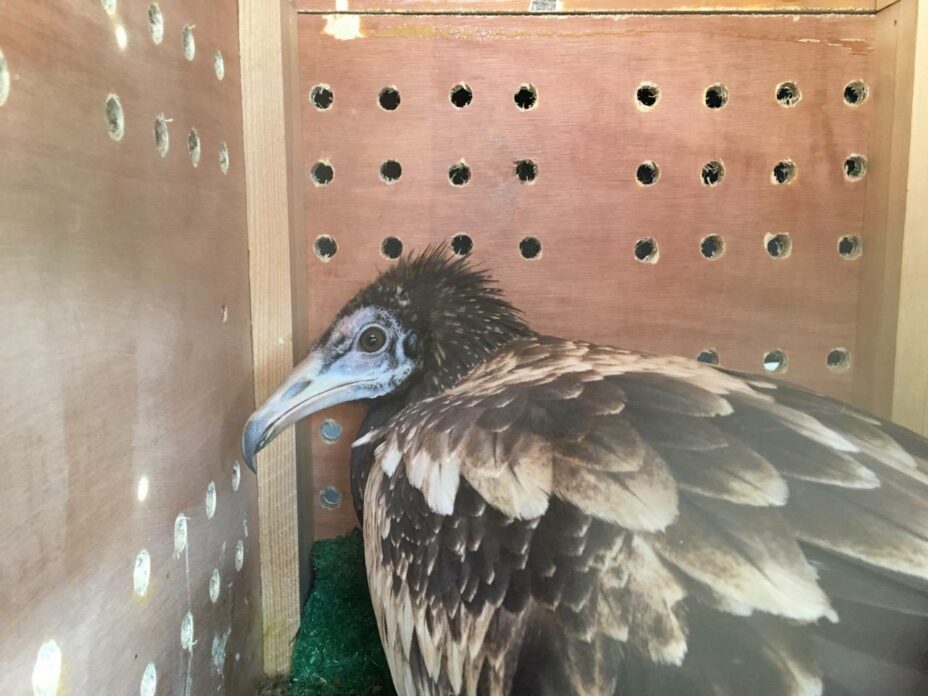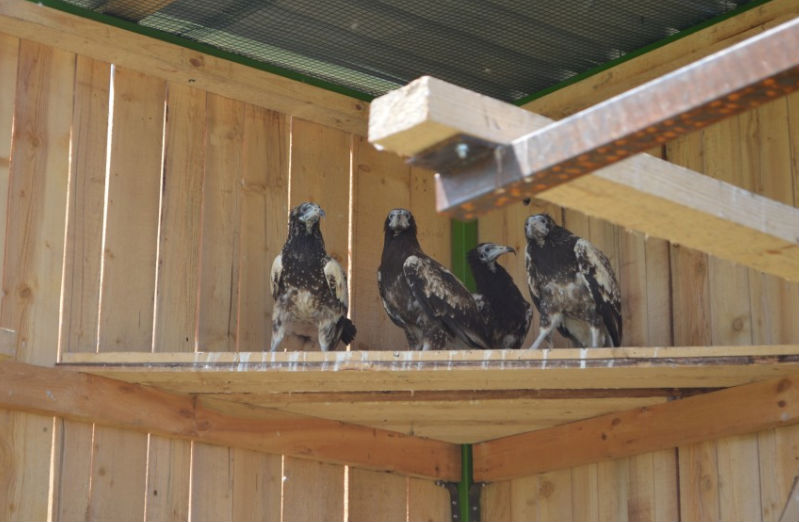Egyptian Vulture Bulgaria
Testing release methods to restock the Egyptian Vulture in Bulgaria and reinforce the Balkan population
- Homepage
- Pages
- Our Work
- Reintroduction And Restocking
- Egyptian Vulture to Bulgaria
© BSPB
The Egyptian Vulture (Neophron percnopterus) is considered Endangered on a global scale, but in the Balkans, its status is even bleaker. The Balkan population of the species is considered Critically Endangered, which is worrying since the Balkans are the starting point for one of the two primary migration routes. The core Balkan population in Bulgaria and Greece, with additional pairs in Albania and the Republic of Macedonia, migrates to wintering grounds that largely overlap with resident populations in West Africa, the Sahel, East Africa and the Arabian Peninsula. Most European breeding pairs (80 per cent) are concentrated in the Iberian Peninsula. Elsewhere the population is highly fragmented, with about 230 pairs nesting in the Caucasus, but only 60-80 in the Balkans and less than ten pairs in the Apennine peninsula. Therefore, it is essential to conserve the Balkan pairs, as they act as a bridge between the Asian and the Iberian populations, and are critical for the global conservation status of the species. The Return of the Neophron project which ran between 2011 and 2016, undertook urgent conservation actions to prevent the extinction of Egyptian Vultures in Bulgaria and Greece. Now, the Egyptian Vulture New LIFE builds on this works in Europe and extends conservation actions to important regions in the Balkans, Africa and the Middle East.
FROM CAPTIVITY TO THE WILD
The Egyptian Vulture New LIFE releases birds that hatched in captivity within the Egyptian Vulture EEP into the wild to boost the vulnerable population of the species in Bulgaria and the Balkans.

The Egyptian Vulture New LIFE is a partnership of organisations, led by the Bulgarian Society for the Protection of Birds from 14 countries to protect Egyptian Vultures not only in Europe but all along their migratory flyway, which will be vitally important for this migratory species. The project aims to reinforce the Egyptian Vulture population in their easternmost range in Europe across the Balkans by actively managing and restocking the small remaining population in the region through releasing captive-bred birds and therefore boosting the species recovery. The project is also working to deliver conservation measures that eliminate major known threats such as illegal poisoning and electrocution, and closely monitor the population using GPS transmitters to help tackle these threats. The latest monitoring actions determined that there are 25 pairs in Bulgaria, about half of the Balkan population. In Greece, their numbers have dropped to another historical minimum with only three pairs left in Thrace. In Albania, there are five pairs and 12 breeding pairs in North Macedonia.
TESTING RELEASE METHODS
The project will test three different release techniques (hacking, fostering in wild nests and delayed-release) over a five-year experiment to improve the survival of captive-bred Egyptian Vultures.

The Vulture Conservation Foundation (VCF) supports the Egyptian Vulture New LIFE’s experimental release procedure to test release techniques for captive-bred Egyptian Vultures from the Egyptian Vulture Captive Breeding Network (EEP) and measure their survival and migration behaviour. As part of this experiment, the project will test three different release methods — hacking, fostering in wild nests and delayed-release. With the traditional hacking technique, chicks are released in an artificial enclosed surrogate nest where they will be fed and monitored without any human contact until they fledge. The fostering technique introduced captive-bred chicks to wild nest that will be fostered by wild adult pairs.
The delayed-release technique involves releasing the birds in spring, one year after they hatched in captivity. This long-term comprehensive experiment will help understand the best technique for releasing these migratory vultures and inform future restocking programmes in the Balkans.

